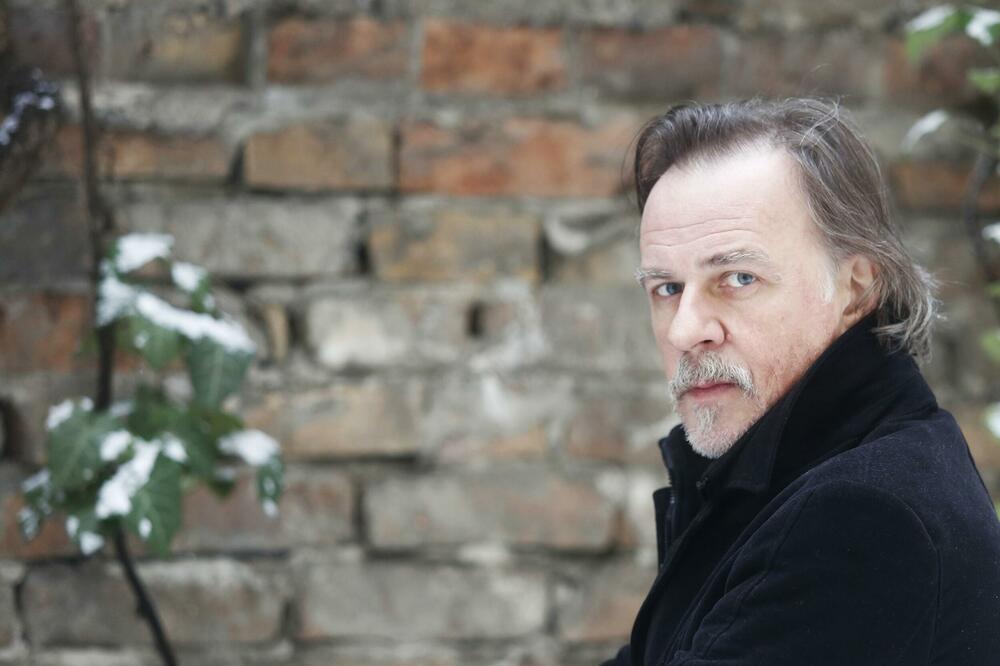The year is 1978 or 1979... For days, at every turn, everyone is talking about a theater play Marko Kraljević Superstar. At that time, it was not unusual for Dom Omladine to have a more popular show than CNP.
A relative from Kikinda, then a student in Titograd, Slavica Pajović she took me and my one year younger brother to a retelling play. An experience to remember. The small hall of the Dom omladine. An unimaginable crowd, it seemed to me that people were sitting on top of each other.
Then followed two hours of great fun. For both 12-13-year-old boys and those older, it was the joy of the game, which with its powerful gravity attracted all the attention and all the emotions in the hall.
The demystification of the epic hero also rests on the fact that classic epic attributes are separated into two spectacular stage characters - Markovi Šarac and Buzdovan act equally with the titular hero. Incredible energy, witty text that was constantly changing, so each subsequent performance was both better and a little longer. Waves of laughter came one after the other, you couldn't stop reacting. The fabric of folk poetry, of the epic world, bursts in front of you, appearing as fiction, as a ridiculous construction and nothing more.
That was the first time I saw on stage Žarko Laušević. THE Mima Karadžić, Marko Baćović, Stela Ćetković... Mima was Mace, and Žarko - Šarac.
The songs of the young singer-songwriter from Nikšić were a special story Miladin Šobić. Some of the most beautiful young women from Titograd of that time are sitting in the first row. I would like today's girls to be able to see not how they looked, but how some of the women from Titograđa radiated at that time. Among them is a long-haired one B. Š., and it seems to me that Šobić sings the ending of each song right into her eyes...
That legendary performance of the young man Sloba Milatović (which made him a director's star at the SFRY level) was, among other things, a very entertaining deconstruction of an epic worldview, exactly what Montenegro needed in those years. (If there had been a few more such plays and such stories, perhaps the nineties would have been less bloody.)
The Spirit of Dodest is a special story, and, no matter how much it is told, it seems to me that it is also untold. Namely, every new look at that time and people reveals something new, something forgotten and which certainly should not be left to oblivion. People like Slob i Johnny they gathered enthusiasts who started the matter from a standstill, and it is difficult for today's reader to imagine that staleness, the spiritual malaise of a deep socialist province. Where it is only and crucially important - not to make waves. And everything else ends - some committee.
Some five or six years later I will watch the same play (with Alexander Berček as Mark) in the large Hall of the Youth Center. Back then, it was already a Yugoslav stage hit, more luxurious in terms of production, but in my memory it didn't reach the magic of that play from the Small Hall.
During the eighties, Laušević grew into one of the best and probably the most popular Yugoslav actors of his generation. One critic (R. Munitić) then wrote that of all the Yugoslav actors, only Laušević would have a career in classic Hollywood.
It was all his world, the world in which he was so naturally the favorite hero, the protagonist.
And then came a time for which no one was prepared. Except primitives and darklings of all kinds. Epic time, no lag.
Žarko did the unforgivable. He locked his entire life into one night, into one (inadmissible) reaction, into a wrongly chosen line... He allowed the epic monster he once mocked so devastatingly to come to life.
His writing - and I believe that writing also had a therapeutic dimension - was a way for him to try to explain to himself what he himself never fully understood.
What you have seen in recent years in TV series or movies is just a shadow, a remnant of an actor of miraculous energy and charisma. My hazy recollection of a performance in the Small Hall of Dom omladine is just a form of farewell to the most talented Montenegrin and Yugoslav actor.
Bonus video:





